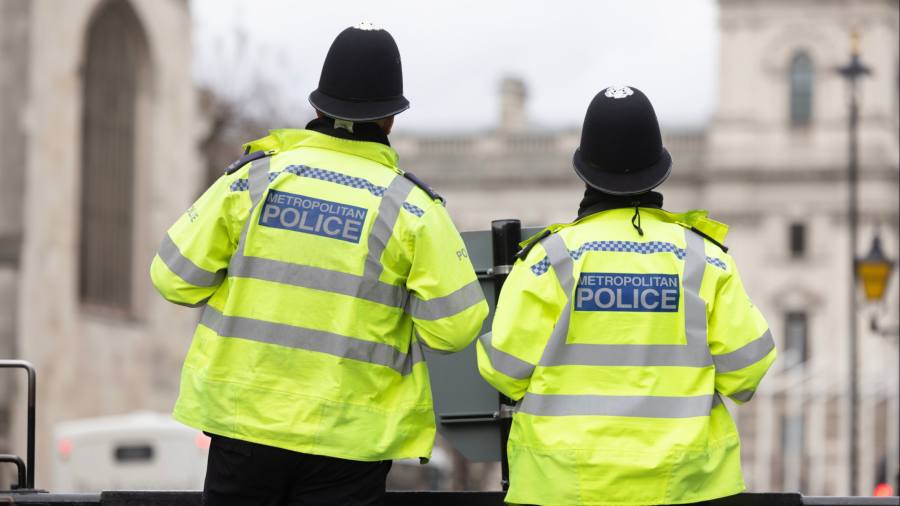
Receive free UK police updates
We’ll send you a myFT Daily Digest email rounding up the latest UK police news every morning.
Police officers found guilty of gross misconduct will be sacked automatically under new powers to help restore public confidence in the service.
Chief constables, who have long complained they have had to retain rogue officers because the disciplinary process was too slow and cumbersome, will also be given authority to sack anyone who fails vetting procedures.
Over the past two years, police forces across England and Wales have faced a string of allegations over racism, misogyny and corruption, and for failing to hold wrongdoing to account.
In 2021, serving police officer Wayne Couzens pleaded guilty to the murder of Sarah Everard, leading to allegations that London’s Metropolitan Police service was failing to vet officers properly. In February, the Met officer David Carrick was imprisoned for life after he was found guilty of 85 serious offences including 48 rapes. The convictions seriously damaged trust in the city’s police force.
Suella Braverman, the home secretary, said “corrupt police officers and those who behave poorly or fail vetting must be kicked out of our forces”. She added that “for too long our police chiefs have not had the powers they need to root out those who have no place wearing the uniform”.
Policing officials will now work with the Home Office to draw up a list of criminal offences that would automatically amount to gross misconduct, including sexual offences.
Lawyers, known as legally qualified chairs, were brought in to oversee police disciplinary panels in 2016 in a bid to make the system more transparent. But under the new rules, police chiefs will assume the role of chair of these public hearings, giving them powers to determine outcomes more swiftly.
While police chiefs welcomed the move, the Police Federation of England and Wales, which represents serving officers, said that putting chief constables in charge of misconduct hearings was “deeply concerning”.
Steve Hartshorn, chair of the federation, said it was a “retrograde step” and a “return to the dark days, a return to kangaroo courts”. He added that lawyers were brought in to chair the process to ensure sound and reasoned judgments, and their role should have been strengthened rather than overturned.
Yvette Cooper, Labour’s shadow home secretary, said the Conservative government had acted “too slowly” in giving police chiefs these new powers and was “not going far enough to raise standards, root out abuse and restore confidence in the vital work the police do to keep communities safe”.
She added that Labour had called for police officers under investigation for rape and domestic violence to be suspended pending investigation.
Alistair Carmichael, Liberal Democrat home affairs spokesperson, said it was a “disgrace that it’s taken so long” for the government to address cracks in the police vetting and misconduct procedures.